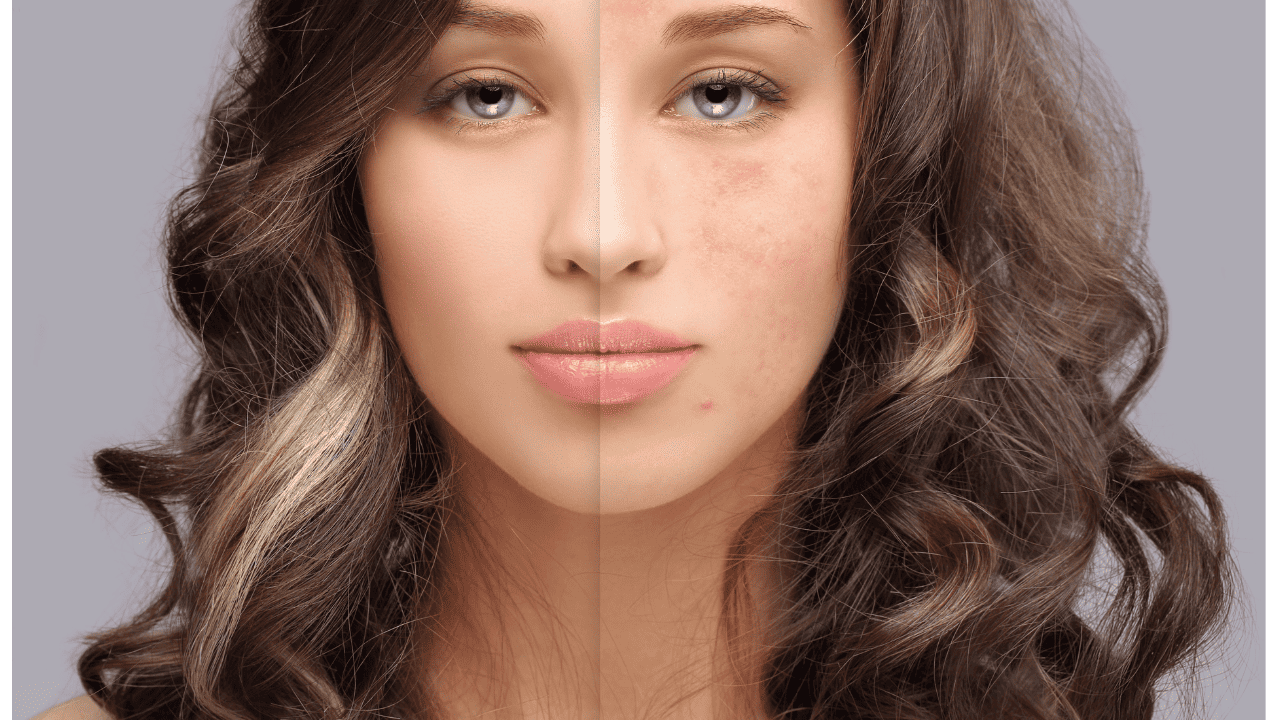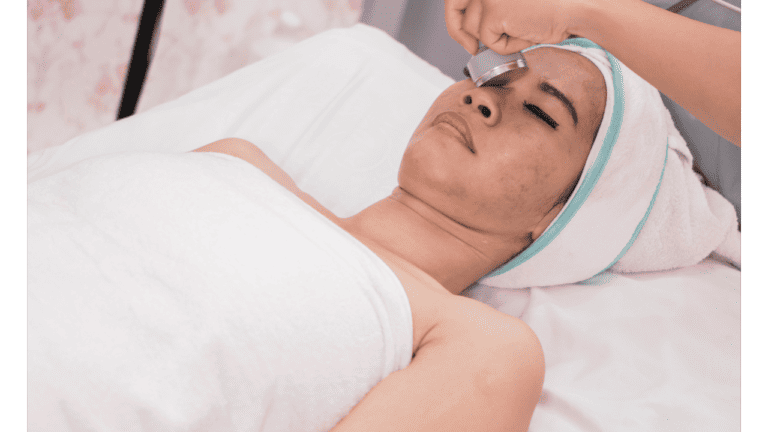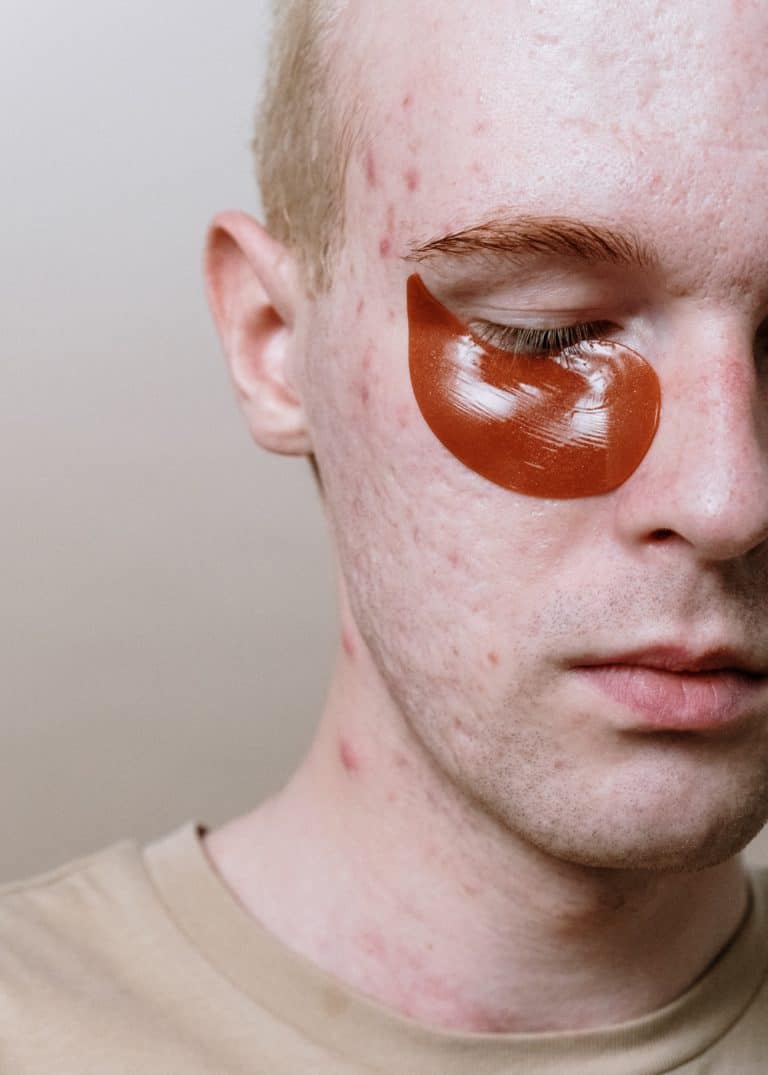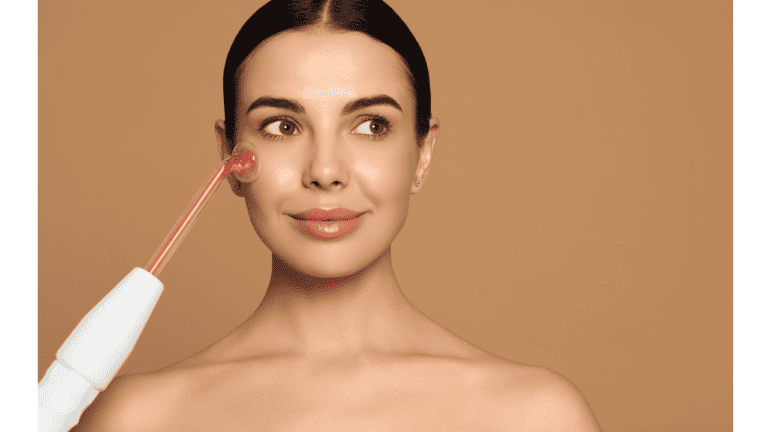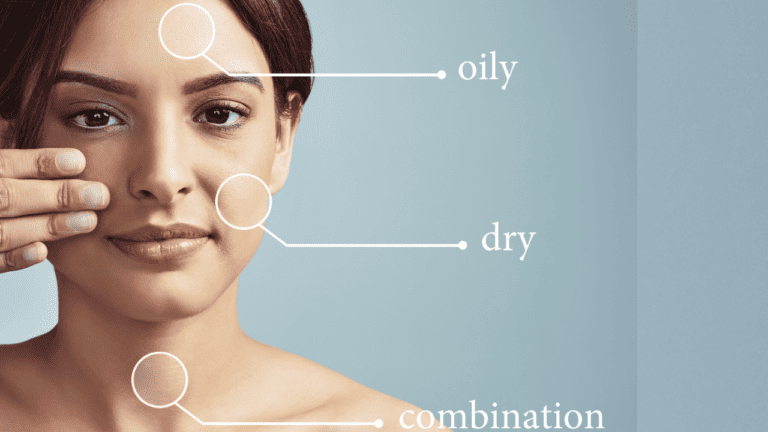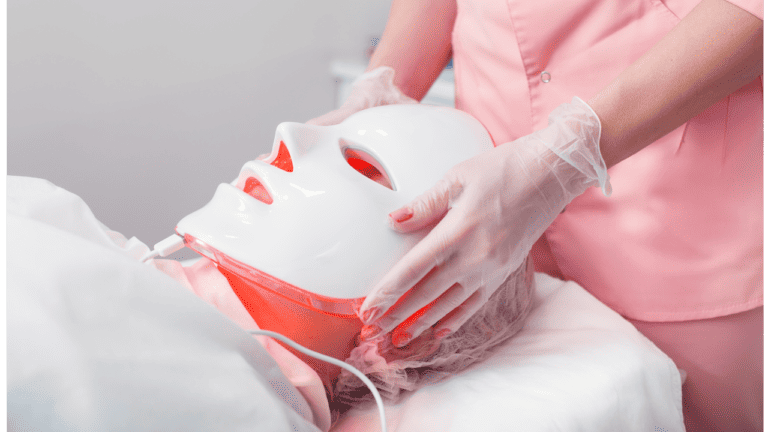Skincare products are an important part of many people’s daily routines. They can help improve the appearance and health of the skin, but sometimes they can also cause unwanted reactions such as breakouts. When a person experiences breakouts after using skincare products, they may wonder if the products are causing the problem.

Understanding Skin Reactions to Skincare Products can be complex. Many factors can contribute to skin reactions, including the ingredients in the products, the person’s skin type, and their skincare routine. Different people may react differently to the same product, and some people may be more prone to breakouts than others. It can be challenging to determine the cause of breakouts, but with some knowledge and experimentation, it is possible to find the right skincare products that work for each individual.
Overall, it is essential to be mindful of the products used on the skin and to pay attention to how the skin reacts to them. Consulting with dermatology experts can also be helpful in determining the best skincare routine and products for each person. By taking a proactive approach to skincare, individuals can achieve healthy, radiant skin without the worry of breakouts.
Key Takeaways
- Skin reactions to skincare products can be complex and vary from person to person.
- Understanding the ingredients in skincare products and how they affect the skin can help prevent breakouts.
- Consulting with dermatology experts and being mindful of skincare routines can help achieve healthy, radiant skin.
Understanding Skin Reactions to Skincare Products

When it comes to skincare, it’s not uncommon to experience breakouts or other skin reactions. However, it can be difficult to determine whether the products you’re using are causing the problem or if it’s just a coincidence. In this section, we’ll explore some common causes of skin reactions and how to identify them.
Identifying Breakouts vs. Purging
One of the most common skin reactions to skincare products is breakouts. Breakouts can occur when pores become clogged with oil and dead skin cells, leading to pimples, blackheads, and whiteheads. However, it’s important to note that not all breakouts are caused by the products you’re using. Hormonal changes, stress, and diet can also play a role in breakouts.
On the other hand, skin purging is a reaction that occurs when you start using a new product that increases skin cell turnover. This can cause existing impurities to rise to the surface of the skin, resulting in breakouts. Skin purging is a normal reaction and should subside after a few weeks of using the product.
To determine whether you’re experiencing a breakout or skin purging, pay attention to the timing and location of the bumps. Breakouts usually occur in areas where you’re prone to acne, while skin purging can occur anywhere on the face.
Common Irritants and Allergens
Another common cause of skin reactions is irritation or allergic reactions. Some ingredients commonly found in skincare products can cause irritation or allergic reactions in some people. These include:
- Fragrances
- Preservatives
- Dyes
- Essential oils
- Acids
If you suspect that you’re experiencing an allergic reaction or sensitivity to a product, stop using it immediately. Some signs of an allergic reaction include redness, itching, and swelling. If the reaction is severe, seek medical attention.
It’s also important to note that some people have skin that is naturally more sensitive than others. If you have sensitive skin, it’s important to avoid products that contain potential irritants and allergens.
In conclusion, understanding skin reactions to skincare products can be difficult, but it’s important to pay attention to your skin and be aware of the ingredients in the products you’re using. By identifying potential triggers and avoiding them, you can help keep your skin healthy and clear.
Ingredients and Their Effects on the Skin

When it comes to skincare, it’s important to understand the ingredients in the products you’re using and how they affect your skin. Some ingredients can cause breakouts, while others can be beneficial for acne-prone skin.
Active Ingredients Known to Cause Breakouts
Certain active ingredients can cause breakouts, especially for those with sensitive or acne-prone skin. These include:
- Benzoyl peroxide: While this ingredient is commonly used to treat acne, it can also cause dryness, redness, and irritation. It’s important to start with a low concentration and gradually increase to avoid irritation.
- Chemical exfoliants: Chemical exfoliants such as alpha-hydroxy acids (AHAs) and beta-hydroxy acids (BHAs) can be effective for removing dead skin cells and unclogging pores. However, they can also cause irritation and dryness, especially when used too frequently or in high concentrations.
- Comedogenic ingredients: These are ingredients that can clog pores and lead to breakouts. Common comedogenic ingredients include coconut oil, cocoa butter, and some types of silicones. It’s important to check the ingredient list and avoid products that contain comedogenic ingredients if you’re prone to breakouts.
Beneficial Ingredients for Acne-Prone Skin
While some ingredients can cause breakouts, others can be beneficial for acne-prone skin. These include:
- Salicylic acid: This ingredient is a type of beta-hydroxy acid that can help unclog pores and reduce inflammation. It’s commonly used in acne treatments and can be effective for those with oily or acne-prone skin.
- Retinol: A derivative of vitamin A, retinol can help reduce the appearance of acne scars and improve skin texture. It’s important to start with a low concentration and gradually increase to avoid irritation.
- Niacinamide: This ingredient is a form of vitamin B3 that can help reduce inflammation and redness. It’s commonly used in acne treatments and can be effective for those with sensitive or acne-prone skin.
- Hyaluronic acid: This ingredient can help hydrate the skin without clogging pores. It’s commonly used in moisturizers and can be effective for those with oily or acne-prone skin.
- Vitamin C: This ingredient is a powerful antioxidant that can help reduce inflammation and improve skin texture. It’s commonly used in serums and can be effective for those with acne-prone skin.
Overall, it’s important to understand the ingredients in your skincare products and how they affect your skin. By avoiding certain ingredients and using beneficial ones, you can help prevent breakouts and improve the overall health of your skin.
Skincare Routines and Practices

Taking care of your skin is essential for maintaining a healthy and radiant complexion. However, using the wrong skincare products can lead to breakouts and other skin issues. In this section, we will discuss some skincare routines and practices that can help prevent breakouts and promote healthy skin.
Proper Application and Usage
One of the most important things to keep in mind when using skincare products is proper application and usage. Applying too much product or using it incorrectly can cause irritation and breakouts. It is important to read the instructions carefully and follow them exactly.
Additionally, it is important to use skincare products consistently. Skipping a day or two can disrupt the skin cell turnover rate, leading to breakouts and other skin issues. Make sure to use your products as directed and on a regular basis.
The Role of Exfoliation in Skin Health
Exfoliation is an important step in any skincare routine. It helps to remove dead skin cells, unclog pores, and promote healthy skin cell turnover rate. There are two types of exfoliation: physical and chemical.
Physical exfoliation involves using a scrub or brush to manually remove dead skin cells. Chemical exfoliation involves using exfoliating acids or a chemical peel to dissolve dead skin cells. Both methods can be effective, but it is important to choose the right method for your skin type.
It is also important to avoid over-exfoliating, as this can cause irritation and breakouts. Generally, it is recommended to exfoliate once or twice a week, depending on your skin type.
Sun Protection
Sun protection is another important aspect of any skincare routine. Exposure to UV rays can cause damage to the skin, leading to premature aging and other skin issues. It is important to wear sunscreen with at least SPF 30 every day, even on cloudy days.
Patch Test
Before using any new skincare product, it is important to do a patch test. This involves applying a small amount of the product to a small area of skin and waiting 24-48 hours to see if there is any reaction. This can help to prevent allergic reactions and other skin issues.
In conclusion, following a proper skincare routine and using the right products can help to prevent breakouts and promote healthy skin. By using these tips and techniques, you can achieve a radiant and healthy complexion.
Consulting Dermatology Experts

When it comes to skincare, it can be difficult to know what products will work best for your skin type. Some people may find that certain products cause breakouts or other skin issues, which can be frustrating and confusing. In these cases, it may be helpful to consult with a dermatology expert.
When to See a Dermatologist
If you are experiencing persistent skin issues, such as acne, eczema, or psoriasis, it may be time to see a dermatologist. These professionals are trained to diagnose and treat a wide range of skin conditions and can provide personalized recommendations for your skincare routine. Dermatologists can also help you determine if a particular product is causing your skin issues and recommend alternatives.
It is important to note that not all skin issues require a visit to the dermatologist. If you are experiencing mild or occasional breakouts, you may be able to address the issue with over-the-counter products or simple changes to your skincare routine. However, if you are unsure or concerned about your skin, it is always best to consult with a professional.
Professional Treatments and Recommendations
In addition to providing diagnoses and treatment options, dermatologists can also recommend professional treatments to help improve your skin. These may include chemical peels, microdermabrasion, or laser therapy, among others. These treatments can be effective for addressing specific skin concerns, such as fine lines, wrinkles, or hyperpigmentation.
Dermatologists can also provide recommendations for skincare products that are tailored to your skin type and concerns. They may suggest specific ingredients to look for or avoid, as well as offer advice on how to properly care for your skin. By consulting with a dermatology expert, you can feel confident that you are using the best possible products and treatments for your skin health.
Lifestyle and Environmental Factors
When it comes to skincare, there are many factors that can contribute to breakouts. While some of these factors are beyond our control, others can be managed through lifestyle changes and environmental adjustments.
Diet and Hormonal Influences
Diet plays a significant role in skin health. Consuming a diet high in sugar and processed foods can cause inflammation, which can lead to breakouts. Hormonal imbalances can also affect the skin, especially during puberty, menstruation, and menopause. Eating a balanced diet rich in whole foods, including fruits and vegetables, can help keep hormones in check and reduce inflammation.
External Stressors and Skin Health
External stressors can also contribute to breakouts. Stress, lack of sleep, and exposure to environmental pollutants can all take a toll on the skin. To minimize the impact of these stressors, individuals can practice stress-reducing techniques, such as meditation, yoga, or deep breathing exercises. Additionally, protecting the skin from the sun’s harmful rays with sunscreen and avoiding smoking can also help reduce breakouts.
Overall, maintaining a healthy lifestyle and making adjustments to one’s environment can help improve skin health and reduce breakouts. Individuals can also consider using skincare products specifically designed for sensitive skin and avoiding harsh cleaning and dental products that can irritate the skin.
Frequently Asked Questions
What is the difference between purging and an actual breakout?
Purging is a process where the skin is adjusting to a new skincare product. During this process, the skin may experience an increase in breakouts, but this is normal and temporary. On the other hand, an actual breakout is a reaction to a product that is causing irritation or clogging the pores.
How can I differentiate between skin purging and a reaction to a new skincare product?
Skin purging usually occurs when you introduce a new product that contains active ingredients such as retinoids, AHAs, and BHAs. The breakouts will appear in areas where you usually experience breakouts. If the breakouts are in new areas or the skin is irritated, it may be a reaction to the product.
What steps can I take if I suspect a skincare product is causing breakouts?
If you suspect that a skincare product is causing breakouts, stop using it immediately. Give your skin a break for a few days and see if the breakouts subside. If they do, you may want to reintroduce the product slowly, using it every other day or every few days. If the breakouts persist, it’s best to discontinue use and try a different product. It’s also important to note that not all breakouts are caused by skincare products, so it’s always a good idea to consult a dermatologist if the breakouts persist or worsen.
